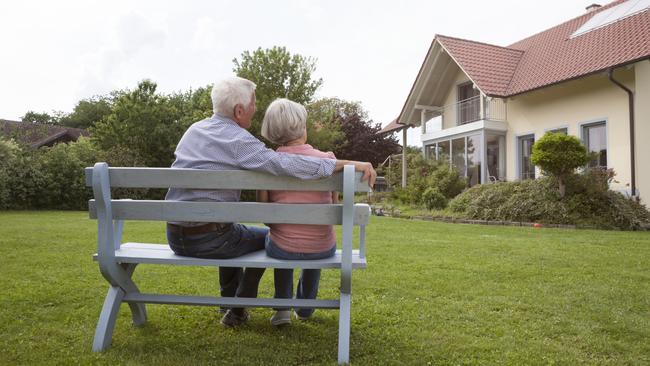Older Australians report significant psychological harm from Covid and its lockdowns, with women more affected
Older Australians report significant psychological harm from Covid and its lockdowns, with women more affected, a new report finds.

Older women were more likely to have been psychologically knocked around by the Covid pandemic and its lockdowns than older men, experiencing more isolation, fear, loss of sleep and angst about separation from family, new research reveals.
The study shows older people across the board suffered a range of adverse consequences during the pandemic, including greater loneliness and loss of social connection, worsening mental health and reduced physical activity.
In a survey of more than 1000 Australians aged 75+, a minority reported some positives from the pandemic, including increased resilience and being able to spend more time on hobbies, but the overall conclusion was a finding of significant harm.
“The Covid-19 pandemic and lockdowns have had profound impacts on the mental health and wellbeing of people aged 75 and over,” the study, commissioned by the Council on the Ageing and the Australian National Mental Health Commission concludes.

“These impacts have manifested in different ways, including loneliness, fear, loss of social connections, worsening mental health and reduced physical activity, leading to cognitive decline,” it says.
“Particularly affected were older Australians in residential aged care, people with disability, people living with dementia, those with caring responsibilities, older people from culturally and linguistically diverse communities and those with pre-existing mental health conditions.”
The report uncovered marked differences between the experiences of older men and women during the pandemic.
“Older women were more likely than older men to report their mental health worsened during the pandemic, fluctuated regularly, or they experienced mental ill-health for the first time,” it says.
They were also “significantly more likely than men to experience loss of confidence, mood changes, feeling isolated and lonely, living with fear, loss of appetite and sleep, distress by loss of usual activities and separation from family.”
Men were more likely to rate their mental health as excellent and say they felt well during lockdowns and that their routine didn’t change. And they were significantly less likely than women to have remained connected with friends or family during the periods of isolation, or used social media to stay connected.
On the flip side, older women were almost twice as likely (42 per cent) to say the pandemic had some positive outcomes than men (24 per cent).
“Significantly more women than men also reported they enjoyed having more time to themselves and having more time to do things they enjoyed,” it said.
COTA Australia chief executive officer Patricia Sparrow said the findings were a reminder that older Australians bore a particular brunt during the pandemic.

“The mental health needs of older Australians are so often forgotten about,“ Ms Sparrow said.
“It‘s clear that for older Australians, every month they spent locked down or fearful of seeing people because they might catch Covid-19 had, and continues to have, impacts on their mental health and wellbeing that younger people may not have experienced or may recover from differently.
“The research has led to recommendations that we provide more targeted support and information for older people, particularly around maintaining their mental health and wellbeing, when community-wide health events occur in the future,” she said.
The study found older people were especially affected by being unable to properly mourn loved ones who died during the pandemic’s lockdowns, especially if it was a spouse.
And many older Australians caring for their partner struggled without their usual support services or being able to access respite.








To join the conversation, please log in. Don't have an account? Register
Join the conversation, you are commenting as Logout